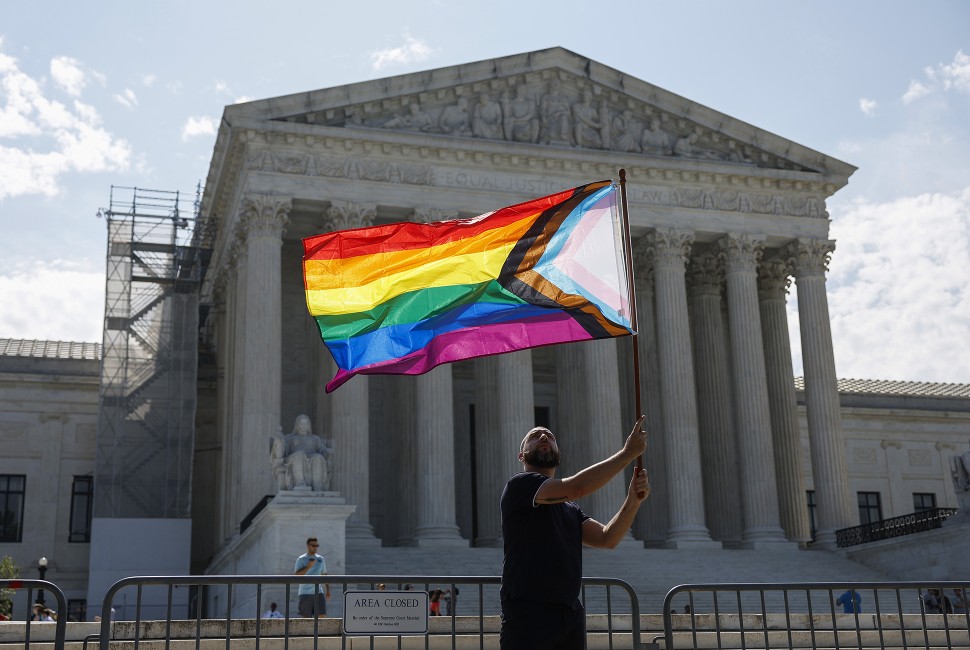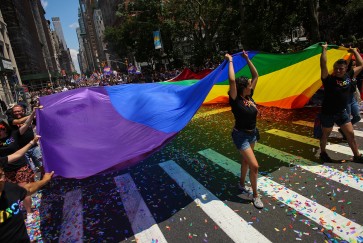The U.S. Supreme Court ruled on Friday, June 30, that individuals and businesses that provide “expressive services” may opt out of offering services for LGBTQ+ individuals.
The decision, 6-3, rules in favor of the first amendment right to free speech and is “another extremely vague decision by the Supreme Court,” according to Northwestern experts.
Taken with the nationwide outbreak of hundreds of proposed anti-LGBTQ+ laws, the ambiguity of the ruling may contribute to poor mental health outcomes in queer populations — which can connect to poor physical health outcomes, too.
Northwestern faculty across disciplines spoke recently with the campus community about how the ruling will impact Americans and businesses culturally and legally. Northwestern Now has summarized some of their comments.
What was the jist of the ruling?
“A graphic designer wanted to expand her business to include custom designed wedding websites, but she opposes same sex marriage on religious grounds. She did not want to design sites for same sex weddings,” said Andrew M. Koppelman, John Paul Stevens Professor of Law at Northwestern Pritzker School of Law. “And she operates in Colorado, which has an anti-discrimination act that says businesses that are open to the public are forbidden from discriminating against LGBT people or announcing their intent to do so.
“The court went on to say, ‘Well, we can't force people to express something that they don't agree with.’ If anti-discrimination law tries to ‘compel speech,’ anti-discrimination law can't be applied in such cases. The big open question is, what does this category of ‘expressive conduct’ mean that is now protected from anti-discrimination law?”
How does the court define expressive services?
“In the litigation, both sides stipulated to the fact that her businesses is expressive,” Koppelman said. “A stipulation is an agreement by the parties that there is some fact that they're not going to fight over that they agreed to in court. So the constitutional question is, what counts as expressive? Because the parties stipulated, we don't have to say anything at all about the boundaries of expressive services.”
How broad, or narrow, is the ruling?
“That has yet to be seen,” Koppelman said. “This is another extremely vague decision by the Supreme Court. It has no effect at all on private entities who themselves don't discriminate, and who monitor their own internal operations to make sure that they don't discriminate.”
“Even though the effect of the case it could turn out to be really narrow, it could be broader,” said Lauren B. Beach, assistant professor of medical social sciences and preventative medicine at Northwestern University Feinberg School of Medicine. “We don't really know. Only time will tell to see how the case law around it builds, but that almost doesn’t really matter.
“Because people are taking away from it if they're LGBT, that it's debatable whether they're going to be protected by non-discrimination protections. The effect of that being open for debate is going to trigger people's sense that they're unwanted, that they don't belong, that it's not safe for them, that they can't go into a business and be sure if they're going to be served, even if the law of the land in their state says that they should be protected from discrimination. It’s that uncertainty that leads to the anxiety and mental health implications of it.”
How can we tie this ruling to our mental health?
“In the dissent, the Justices talk a lot about this caste,” said Cindy Veldhuis, assistant professor of medical social sciences and obstetrics and gynecology and in the Institute for Sexual and Gender Minority Health and Wellbeing. “LGBT people are second-class citizens, which has already been established by all the anti-LGBT bills. No matter the practical impacts of this decision, I think it shows us that we just don't have the same rights as other people, which has been reinforced repeatedly. And I think that reinforces for some people how they feel already in the world as an LGBT person.
“The rhetoric surrounding the fact that anti-LGBT bills are being proposed has really negative impacts on well-being. We don’t have data yet on the impacts of nationwide anti-LGBT bills and rhetoric. To be frank, this is unprecedented. If we think about the multiple impacts of policies — stress from the rhetoric, stress from others’ increasingly negative attitudes, practically no longer being able to access or do things you used to be able to and feeling even more marginalized and like a second-class citizen — it would not be hard to imagine that the mental health of LGBTQ+ people would take a huge toll.”


